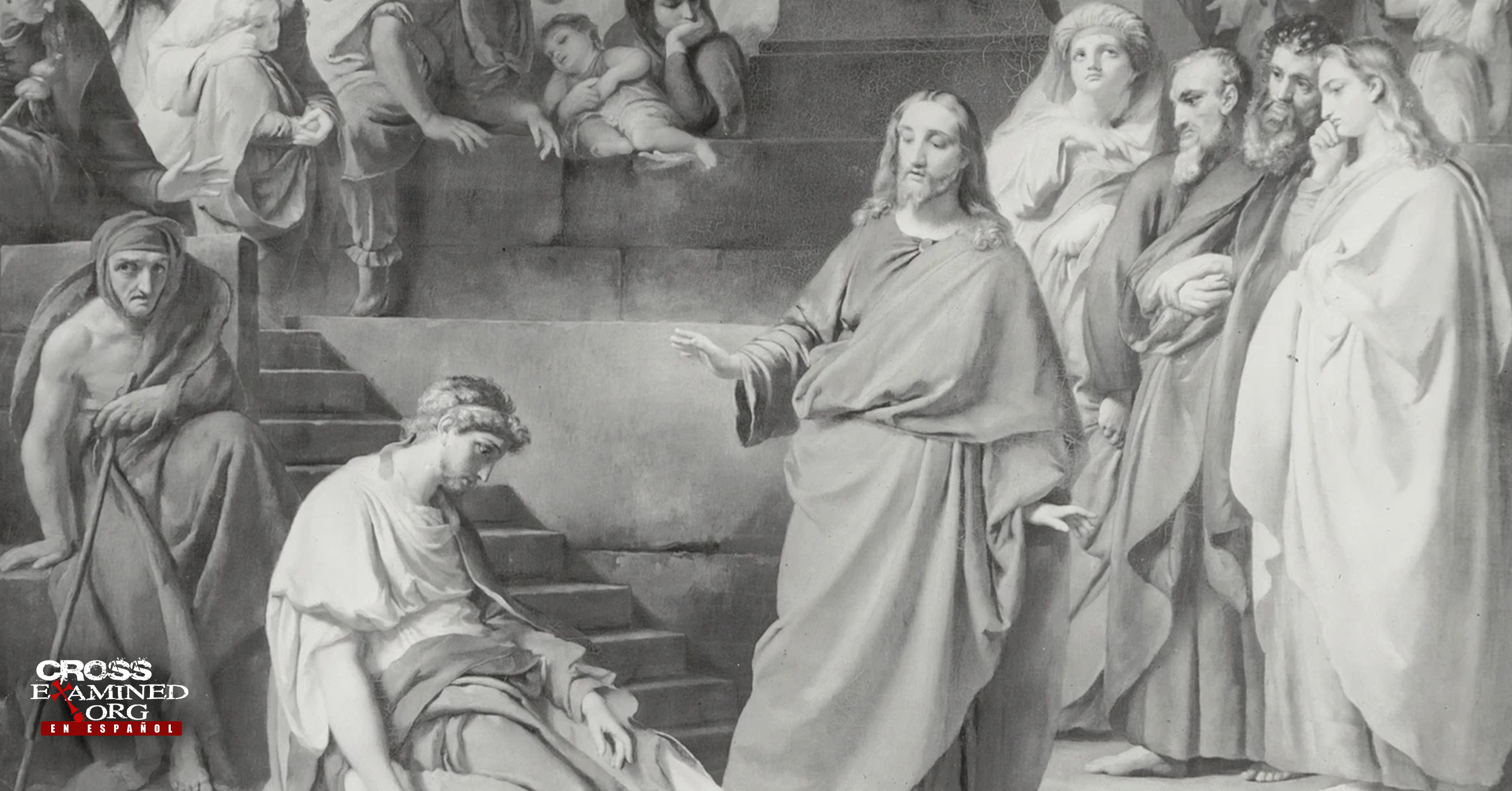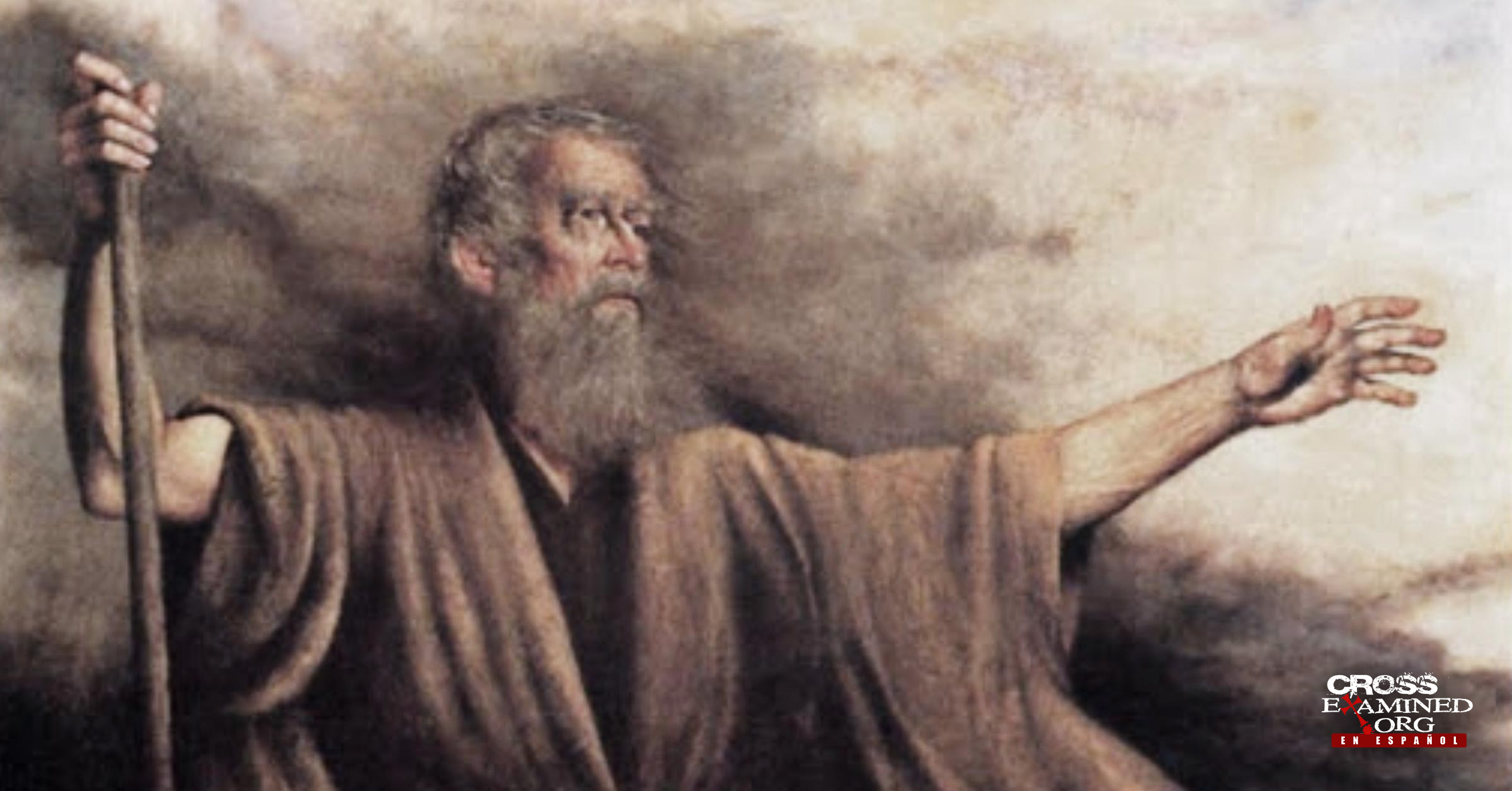Bart Ehrman is a professor of religious studies at UNC-Chapel Hill in North Carolina. He is well known for his best-selling books critiquing core tenets of evangelical Christianity and, in particular, the reliability of New Testament sources. Regular readers of my articles will already know that Ehrman is not the most careful scholar when it comes to his use of ancient sources. A few days ago, Ehrman posted two blog entries ( here and here ) on his website, claiming that the idea that Jesus is himself Yahweh is a recent doctrinal innovation, completely foreign to the New Testament and the early church. Ehrman even goes so far as to say that this is the view of only “some conservative evangelical Christians” and that “I have never even heard the claim (let alone a discussion of it) until very recently.” Furthermore, Ehrman adds,
I, frankly, had never heard of such a thing until six years ago. Maybe I wasn’t listening in Sunday school, or maybe I was sleeping through those particular lectures at Moody Bible Institute; or maybe… Nah, I don’t think so. If anyone knows otherwise, please let me know. But I can’t think of any ancient Christian source that speaks of Jesus as Yahweh himself. Jesus is the son of Yahweh.
Ehrman claims that,
The first time I heard someone say with authority that Jesus was Yahweh and that this was standard Christian teaching was in a debate I had with Justin Bass in 2015 – you can listen to it on Youtube. I don’t remember at what point in the debate he said it, but he made some comment about Jesus being Yahweh, and I froze. I thought: theologians have never called Jesus Yahweh!
That a scholar of Ehrman’s stature would be misinformed about orthodox Christian teaching on such a fundamental issue is absolutely astonishing. In this article, I respond to Ehrman’s articles and show that he is profoundly mistaken about the teaching of the New Testament and the early church.
The first Christian theologians
Ehrman wonders “if there are early Christian theologians who hold this view.” Yes, there are many. For example, Justin Martyr (~100-165), in his dialogue with Trypho the Jew, wrote [1] ,
…now you will permit me first to relate the prophecies, which I wish to do to prove that Christ is called both God and Lord of hosts…
I don’t know how one can be clearer than that. Irenaeus (~130-202) also states [2] ,
For I have shown from the Scriptures that none of the sons of Adam is called God or Lord in all things and absolutely. But that He Himself is in His own right, beyond all men who have ever lived, God, and Lord, and Eternal King, and the Incarnate Word, proclaimed by all the prophets, the apostles, and by the Spirit Himself, can be seen by all who have attained even a small portion of the truth.
Ignatius of Antioch (~50-108) also affirmed the full deity of Christ. For example, in his epistle to the Ephesians, he wrote [3] ,
We also have as our Physician the Lord our God, Jesus the Christ, the only begotten Son and Word, before time, but who later also became man, from the virgin Mary.
I could go on quoting the early church fathers for quite a while, but this should suffice to show that the view that Jesus is Yahweh, the eternal God, is not a new idea but goes back to the early church. I will now turn to Ehrman’s comments on the New Testament.
Is the name Yahweh found in the New Testament?
Ehrman states that
Of course, the name Yahweh is not found in the NT at all, as it is a Hebrew word, and the NT is written in Greek. The NT does not give God a personal name.
This is obviously true since the New Testament was written in Greek, not Hebrew. However, the New Testament uses an equivalent word – in fact, the word that replaces the Hebrew tetragrammaton YHWH in the Septuagint Greek translation of the Hebrew Bible. This word is κύριος, which is translated “Lord” in our English Bibles. It is of course true that this word had a broader range of meaning than simply denoting Yahweh (for example, Paul uses it of earthly masters – see Eph 6:5). However, the meaning of the Greek words, as intended by the original author, can be teased out by an examination of the context. For example, Hebrews 1:10-12 quotes Psalm 102:25-27:
“You, Lord, laid the foundations of the earth in the beginning, and the heavens are the work of your hands. 11 They will perish, but you will remain. They will all wear out like a garment. 12 You will roll them up like a cloak, and they will be changed like a robe. But you are the same, and your years will have no end.”
Verse 10 uses the word κύριος, which is evidently (given the fact that the author is quoting an Old Testament Psalm concerning the Lord God) intended to denote Yahweh. What makes this text especially noteworthy for our purposes here is that the author of Hebrews applies the words of this Psalm to Jesus. In fact, this Hebrew scripture is one of several applied to Jesus in Hebrews 1, as the author compares and contrasts the exaltation of the Son with that of angelic beings.
To take another example, consider Paul’s quotation of Joel 2:32 in Romans 10:13: “For ‘everyone who calls on the name of the Lord will be saved.'” Again, this alludes to an Old Testament text that refers to Yahweh. But Paul introduces this text only a few verses after having declared that “if you confess with your mouth that Jesus is Lord and believe in your heart that God raised him from the dead, you will be saved” (Rom. 10:9). The implication here is that the κύριος of verse 9 is the same referent as in verse 13 – namely, Jesus. In other words, Jesus is the Yahweh of Joel 2:32, on whose name we are to call. This point is made even more explicitly by Paul in 1 Corinthians 1:2: “To the church of God which is in Corinth, to those sanctified in Christ Jesus, called to be saints, together with all those who in every place call on the name of our Lord Jesus Christ, both their Lord and ours.” This text again clearly alludes to Joel 2:32, except that the Lord (κύριος) whom we are to call upon is none other than Jesus Christ.
Another example is found in 1 Peter 2:2-4:
“2 As newborn babes, long for the pure milk of the word, that by it you may grow up in your salvation, 3 if indeed you have tasted that the Lord is good. 4 As you come to him, you are a living stone rejected by men but chosen and precious in God’s sight…”
Verse 3 quotes Psalm 34:8 (“Oh, taste and see that the LORD [Yahweh] is good!”). However, verse 4 identifies the κύριος of Psalm 34:8 as none other than Jesus himself (the closest antecedent of the pronoun “he” in verse 4 is “the Lord” of verse 3). This implies that Jesus is the Yahweh of Psalm 34:8.
Another example is found in 1 Peter 3:14-15
“14 But even though you may suffer for righteousness’ sake, you will be blessed. Do not be afraid of them, nor be troubled, 15 but in your hearts honor Christ the Lord as holy…”
It is true that there is some level of ambiguity about the original reading of verse 15, as most later manuscripts read θεόν (“God”) rather than Χριστόν (“Christ”). However, Bruce Metzger points out that [4] ,
The reading Χριστόν , however, is strongly supported by early and diversified external evidence… as well as by transcriptional probability, the more familiar expression ( κύριον τὸν θεόν ) substituting the less usual expression ( κύριον τὸν Χριστόν ). The omission of τὸν Χριστόν in the patristic treatise Promissionibus attributed to Quodvultdeus must be due to an accidental oversight of the translator or copyist.
If (as seems likely) the original reading is indeed “Christ the Lord,” then we have another example of an Old Testament text referring to Yahweh applied to Jesus. Compare 1 Peter 3:14-15, above, with Isaiah 8:12-13:
12 “Do not call all that this people call conspiracy a conspiracy, and do not fear what they fear, nor be afraid. 13 But you shall honor the LORD of hosts as a holy one.”
Isaiah 8:12 is quoted by 1 Peter 3:14. Isaiah 8:13 is quoted by 1 Peter 3:15, except that instead of calling his readers to honor the Lord of hosts as holy (as Isaiah did), Peter implores his readers to honor Christ the Lord as holy. Thus we have another case in which the title κύριος (which is correctly interpreted here as a substitute for the Hebrew tetragrammaton) is applied to Jesus.
I could continue along a similar line for a considerable time. However, I trust that this is enough to dispel Ehrman’s argument that the New Testament does not use the name Yahweh and therefore never calls Jesus Yahweh.
Does Psalm 110 rule out Jesus being Yahweh?
Ehrman continues,
When Christians wanted to find another divine being in the Old Testament to identify as Christ, they turned to passages like Psalm 110: “The LORD said to my Lord, ‘Sit at my right hand until I make your enemies your footstool.'” Based on what I said in my previous post, you can reconstruct who is speaking to whom here (note that the first LORD is capitalized and the second is not): “YHWH said to Adonai….”
Ehrman’s entire argument here implicitly presupposes Unitarianism. If the doctrine of the Trinity is true, then there is no problem with the persons within Yahweh’s being or essence being distinguished from one another and even participating in conversation with one another. Nor is there any problem with the Father exalting the Son, since the Son had willingly humbled himself through his incarnation and death on the cross. No Trinitarian identifies the Son with the Father. Rather, the Father, Son, and Holy Spirit are each distinctive persons who together share fully in Yahweh’s essence, each possessing the divine attributes fully and completely.
Ehrman’s rendering of the words used in Psalm 110:1 is not entirely accurate, as it does not say “YHWH said to Adonai…” but rather “YHWH said to Adoni.” This difference may seem trivial (especially since these two words are distinguished only by a difference in Masoretic vowel pointing), but it is actually important. The title “Adonai” is used exclusively as a divine title (essentially as a synonym for YHWH). In fact, the ancient Hebrews, rather than pronouncing the divine name, would say “Adonai.” The word “Adoni,” by contrast, is simply the possessive form of the Hebrew word “Adon,” meaning “Lord” or “Master” (the Hebrew equivalent of the Greek word κύριος). The word can be used to refer to Yahweh, depending on the context, but it is not reserved exclusively to Yahweh. The upshot of this is that, although many Christians have used this text to argue for a plurality of divine persons (and, indeed, for the deity of Christ), the reality is that any such argument based on this text is going to require more work and nuance than it often receives. I don’t think this text is as conclusive as the previous texts we’ve looked at. However, it is, I would argue, certainly suggestive, as we’ll see. The context sheds some light on the referent of verse 1. In verse 5-7 of Psalm 110, we read,
The Lord is at his right hand; he will crush kings on the day of his wrath. He will judge the nations, heaping up the dead and crushing the rulers of the whole earth. He will drink from a brook along the way, and so he will lift up his head on high.
In the Hebrew, verse 5 identifies the one sitting at Yahweh’s right hand as none other than Adonai, a word only used to refer to deity. Thus, Psalm 110 implies a plurality of divine persons within the Godhead. One possible response to this is that Psalm 110:5 is simply the inversion of Psalm 110:1. Just as David’s Lord sits at Yahweh’s right hand, so too Yahweh is at the right hand of David’s Lord. For example, in Psalm 109:31, Yahweh is at the right hand of the needy, and in Psalm 16:8, Yahweh is at the right hand of the psalmist David. The problem with this argument is that if one continues reading Psalm 110, it is clear that the “He”s in verses 5-7 all refer to Adonai, and in verse 7 this individual is said to drink from a stream, a human function. Thus, the individual sitting at the right hand of Yahweh in Psalm 110 appears to be a divine-human person.
Furthermore, Jesus himself argues that “David himself calls him ‘Lord.’ How then can he be his son?” (Mark 12:37). What Jesus means is that none of David’s descendants could be greater than he. Therefore, he cannot refer to an ordinary human descendant of David. The question then arises as to what kind of Lord he could be referring to. But we can go even further. David’s Lord cannot be any human king either, since in Psalm 2:10-12 all kings must be subject to David, and Psalm 89:26-27 tells us that,
“I will appoint him [David] as my firstborn, the greatest of the kings of the earth”
Nor can He be a mere angelic creature, since angels serve God’s elect and are themselves servants (cf. Heb. 1:7, 14; Rev. 19:10 and 22:8-9). Who is left then? God.
The Angel of the Lord
Ehrman notes that Christians (such as Justin Martyr in the second century) have often identified the angel of Yahweh in the Hebrew Bible as a pre-incarnate manifestation of Christ. He writes,
I wonder if the confusion among some evangelicals about the Christian understanding of Christ (when they say He is Yahweh) is because the “Angel” of the LORD is so fully representative of YHWH Himself that He is sometimes called YHWH after He is clearly identified NOT as YHWH but as His angel. Why would He be called YHWH if He were YHWH’s messenger? It would be something like if a messenger from the king comes to you and orders you to do something, you tell your neighbors that the “king” told you to do something. Well, actually, His messenger did it, but he was so fully representative of the king that his words were the king’s words.
This interpretation, however, does not account for the fact that several people throughout the Hebrew Bible marvel at the fact that they have seen the angel of Yahweh and yet their lives are spared (people are not supposed to be able to see Yahweh and live – Exodus 33:20). For example, consider Jacob’s words after he wrestles with a man in Genesis 32, one who is identified in Hosea 12:4 as the angel of Yahweh: “Then Jacob called the name of the place Peniel, saying, ‘For I have seen God face to face, and yet my life has been spared.'” Further support that the individual Jacob wrestled with was the angel of Yahweh comes from the parallelism between Genesis 32:29 and Judges 13:18, in which the man and the angel of Yahweh respectively say, upon being asked for their name, “Why do you ask my name?”
Another instance of this is in Judges 6, where we read of Gideon’s encounter with the angel of Yahweh. In verses 22-24, we read,
22 Then Gideon perceived that it was the angel of the LORD. And Gideon said, “Alas, LORD God! For now I have seen the angel of the LORD face to face.” 23 But the LORD said to him, “Peace be with you. Do not be afraid; you will not die.” 24 So Gideon built an altar there to the LORD and called it, “The LORD is Peace.” To this day it stands in Ophrah, which belongs to the Abiezrites.
Another example is found in Judges 13, which records the appearance of the angel of Yahweh to Manoah and his wife to announce the birth of Samson. In verse 21-22, we read,
21 The angel of the Lord no longer appeared to Manoah and his wife. Then Manoah knew that it was the angel of the Lord. 22 And Manoah said to his wife, “We are sure to die, because we have seen God . “
Thus, we see that numerous texts (and there are many I have not mentioned) attest to the deity of the angel of Yahweh. While Ehrman is correct in pointing out that many of these texts also distinguish the angel of Yahweh from God, this is quite consistent with a Trinitarian paradigm that sees God’s messenger as Yahweh and yet in another sense distinct from Yahweh.
Ehrman’s interpretation of the angel of the Lord passages also fails to explain the parallelism seen in Genesis 48:15-16, in which we read of Jacob’s blessing of Joseph’s sons. He said,
15 “The God before whom my fathers Abraham and Isaac walked, the God who has been my shepherd all my life long until this day, 16 the angel who has redeemed me from all evil, may he bless the boys…”
Here we see a poetic parallel in which the angel is identified with God. In fact, in the Hebrew, verse 16b uses the singular pronoun “let him bless the lads,” implying that the angel and God are one and the same.
I discuss the topic of the angel of the Lord in much more detail here and here .
The Carmen Christi
Ehrman then turns his attention to Christ’s poem in Philippians 2:5-11. He writes,
When Christ is exalted after his death, God gives him “the name that is above every name” for all creation to worship and confess. This is a reference to Isaiah 45 where Yahweh alone has the name above every name for all to worship and confess only him.
Possibly these modern Christians are thinking that Christ must therefore have been given the name YHWH, and therefore he *is* YHWH. But the passage does not seem to mean that. The supreme LORD of all, YHWH, is the one who *gives* Jesus the name that is above all others. It is worth noting that in this very passage, when God gives Jesus his “name,” it does not mean that he has made a name change for Jesus. On the contrary, the passage says that the name before which all will bow in worship and confession is *Jesus*! (not YHWH): “That at the name of Jesus every knee should bow and every tongue confess.” Jesus’ own name is exalted.
However, this is not the argument at all. I do not interpret the “name” in verse 9 to be a personal name. Rather, in my view, this is best understood as a reference to Christ’s reputation that he received as a consequence of his humiliation and death on the cross.
There are at least three mutually supporting arguments for the deity of Christ that can be adduced from this text. First, this text is primarily concerned with Christ’s humility, for “though he was in the form of God, he did not consider equality with God something to be grasped” (Phil. 2:6). This only makes sense if Christ is equal in status to God, for humility is not praised for not exalting oneself to a higher status than one is entitled to. If I refrain from overthrowing the monarchy and exalting myself as king, I should not be praised for my humility in restraining myself. The text is therefore best understood if Christ voluntarily stripped himself of the divine privilege that was rightfully his. This reading is also supported by the Greek. In fact, the construction is known as a double object-complement accusative. Daniel Wallace explains that [5] ,
A double accusative object complement is a construction in which one accusative is the direct object of the verb and the other accusative (whether noun, adjective, participle, or infinitive) complements the object in the sense that it predicates something about it.
In this case, the verb is οὐχ ἡγήσατο (“did not count”), the direct object is τὸ εἶναι ἴσα θεῷ (“equality with God”), and the object complement is ἁρπαγμὸν (“a thing to be grasped”). Thus, the relationship between the direct object and the object complement is rather like an equality sign. In other words, Jesus did not consider equality with God to be a thing to be grasped (ἁρπαγμὸν). Furthermore, Roy Hoover has argued that it is actually an idiomatic expression, “referring to something already present and at one’s disposal.” The question… [is] whether or not one decides to exploit something” [6] Hoover observes that in all cases where this noun ἁρπαγμός is the complement of the object in a construction like this (where the verb is to consider or to see or to regard), it always means something like an exploitable advantage. Therefore, Hoover argues, one could reasonably translate this text to be saying that Christ did not regard equality with God as something to be taken advantage of .
A second consideration is that Paul uses the Greek word μορφῇ in verse 6 to describe Christ as having the form of God and uses this same word in verse 7 to describe Christ as taking the form of a servant. This implies that Christ was in the form of God in the same sense that He took upon Himself the form of a servant. Since Christ was literally a servant, “being born in the likeness of men” (v. 7b), it follows that Christ was also literally God.
Third, Ehrman rightly points out that verses 10-11 allude to Isaiah 45:23, in which we read, “To me [i.e., Yahweh] every knee will bow, every tongue will swear allegiance.” However, in the context of Philippians 2:10-11, every knee bows and every tongue swears allegiance to Jesus. Indeed, that is what it means to confess that Jesus Christ is Lord (κύριος), which literally means master.
Conclusion
To conclude, contrary to Ehrman’s claims, the view that Jesus is Yahweh has been the orthodox Christian position for nearly two millennia, and is taught in the New Testament. Ehrman claims that the name Yahweh is never used in the New Testament and that therefore the New Testament authors could not have applied it to Jesus. However, the New Testament does use the equivalent Greek term κύριος. Although this word is also used to describe earthly masters, the word is often used to denote Yahweh when the New Testament quotes the Old Testament, and often these texts are explicitly applied to the person of Jesus. Ehrman’s argument from the New Testament’s use of Psalm 110 presupposes a unitary paradigm. Although Ehrman argues that the angel of the Lord in the Hebrew Bible is only Yahweh’s agent who is invested with divine authority, this argument collapses on the basis of the various exclamations of surprise following an encounter with the angel of the Lord that one has survived despite having seen God face to face. Finally, Ehrman is mistaken regarding Philippians 2:5-11, which is best read as indicating that Christ willingly laid aside the divine privilege that was rightfully His to take the form of a servant.
Footnotes
[1] Justin Martyr, “Dialogue with Tryphon,” in The Apostolic Fathers with Justin Martyr and Irenaeus, ed. Alexander Roberts, James Donalds. Alexander Roberts, James Donaldson and A. Cleveland Coxe, vol. 1, The Ante-Nicene Fathers (Buffalo, NY: Christian Literature Company, 1885), 212.
[2] Irenaeus of Lyons, “Irenaeus Against Heresies,” in The Apostolic Fathers with Justin Martyr and Irenaeus, ed., Alexander Roberts, James Donaldson, and A. Cleveland Coxe. Alexander Roberts, James Donaldson and A. Cleveland Coxe, vol. 1, The Ante-Nicene Fathers (Buffalo, NY: Christian Literature Company, 1885), 449.
[3] Ignatius of Antioch, “Letter of Ignatius of Antioch to the Ephesians,” in The Apostolic Fathers with Justin Martyr and Irenaeus, ed. Alexander Roberts, James Donaldson and A. Cleveland Coxe, vol. 1, The Ante-Nicene Fathers (Buffalo, NY: Christian Literature Company, 1885), 449. Alexander Roberts, James Donaldson, and A. Cleveland Coxe, vol. 1, The Ante-Nicene Fathers (Buffalo, NY: Christian Literature Company, 1885), 52-200.
[4] Bruce Manning Metzger, United Bible Societies, A Textual Commentary on the Greek New Testament, Second Edition a Companion Volume to the United Bible Societies Greek New Testament (4th Rev. Ed.) (London; New York: United Bible Societies, 1994), 621-622.
[5] Daniel B. Wallace, Greek Grammar Beyond the Basics: An Exegetical Syntax of the New Testament (Grand Rapids, MI: Zondervan, 1996), 182.
[6] Roy W. Hoover, “The Harpagmos Enigma,” Harvard Theological Review 64 (1971).
Recommended resources in Spanish:
Stealing from God ( Paperback ), ( Teacher Study Guide ), and ( Student Study Guide ) by Dr. Frank Turek
Why I Don’t Have Enough Faith to Be an Atheist ( Complete DVD Series ), ( Teacher’s Workbook ), and ( Student’s Handbook ) by Dr. Frank Turek
__________________________________________________________________________________________________________________________________________________
Dr. Jonathan McLatchie is a Christian writer, international speaker, and debater. He holds a BS (Hons) in Forensic Biology, an M.Res in Evolutionary Biology, a second MS in Medical and Molecular Biosciences, and a PhD in Evolutionary Biology. He is currently an Adjunct Professor of Biology at Sattler College in Boston, Massachusetts. Dr. McLatchie contributes to several apologetics websites and is the founder of the Apologetics Academy (Apologetics-Academy.org), a ministry that seeks to equip and train Christians to persuasively defend the faith through regular webinars, as well as to assist Christians struggling with doubt. Dr. McLatchie has participated in over thirty moderated debates around the world with representatives of atheism, Islam, and other alternative worldview perspectives. He has lectured internationally in Europe, North America and South Africa promoting an intelligent, thoughtful and evidence-based Christian faith.
Original Blog: https://cutt.ly/dWH1oIA
Translated by Yatniel Vega Garcia
Edited by Elenita Romero










